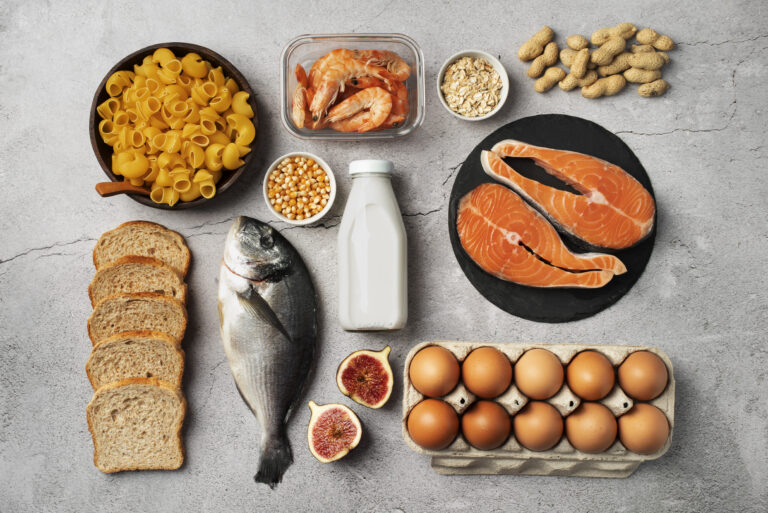What is Vitamin B12?
Vitamin B12 is an essential nutrient that the body cannot synthesize on its own, so it must be obtained through diet or supplements. Vegetarians, pregnant or breastfeeding women, and others at risk of deficiency should carefully monitor their diet to ensure they get enough. It works alongside folic acid (Vitamin B9) and Vitamin B6 (pyridoxine) to produce healthy red blood and nerve cells. Vitamin B12 also aids in the production of DNA, RNA, and other genetic material.
Vitamin B12 is well-known for its vital role in metabolism, particularly in fat metabolism. A deficiency in B12 can lead to feelings of fatigue and an increased risk of obesity.
Foods High in Vitamin B12
Animal Liver and Kidneys
Lamb, beef, and veal kidneys are also rich in Vitamin B12. They provide over 100% of the daily intake for Vitamin B2 and selenium.
Clams
Clams are small but packed with nutrients. These shellfish are a lean protein source and contain very high concentrations of Vitamin B12. They are also a good source of antioxidants. Even clam broth is rich in Vitamin B12.
Sardines
Sardines are rich in Vitamin D and omega-3 fatty acids. If you buy them canned in oil, drain the oil before cooking to reduce the added salt content.
Trout
Additional health benefits: Fatty fish like trout are excellent sources of Vitamin D and omega-3 fatty acids, which support brain function and have anti-inflammatory effects.
Salmon
Additional health benefits: Similar to trout, salmon is a rich source of protein and heart-healthy omega-3 fatty acids. A 3-ounce (85-gram) salmon fillet contains over 100% of the recommended daily intake of Vitamin D.
Tuna
Tuna is a commonly consumed fish and an excellent source of nutrients, including protein, vitamins, and minerals. It contains high concentrations of Vitamin B12, especially in the muscles just beneath the skin. Tuna also provides phosphorus, selenium, and Vitamins A and B3. Even canned tuna contains a significant amount of Vitamin B12.
Eggs
Eggs are a great source of complete protein and B vitamins, particularly B2 and B12. Research shows that egg yolks contain higher levels of Vitamin B12 than egg whites, and the B12 in yolks is easier to absorb. For this reason, it’s recommended to eat whole eggs rather than just the whites.
Milk and Dairy Products
Milk and dairy products such as yogurt and cheese are excellent sources of protein and several vitamins and minerals, including Vitamin B12. Cheese is also a rich source of Vitamin B12, and full-fat plain yogurt can be an especially good option. Studies have shown that yogurt can help improve Vitamin B12 levels in people with deficiencies.
Beef
Beef is an excellent source of Vitamin B12. A single steak provides reasonable amounts of Vitamins B2, B3, and B6, along with over 100% of the daily requirement for selenium and zinc. For higher concentrations of Vitamin B12, choose lean cuts of beef. It’s also better to grill or roast it rather than frying, as this helps preserve its Vitamin B12 content.
Fortified Cereals
Fortified cereals are a good source of Vitamin B12 for vegetarians and vegans, as the vitamin is synthetic and not derived from animal sources.
Whether you’re looking to boost your vitamin reserves or prevent deficiencies, consuming these foods can significantly improve your overall health.
